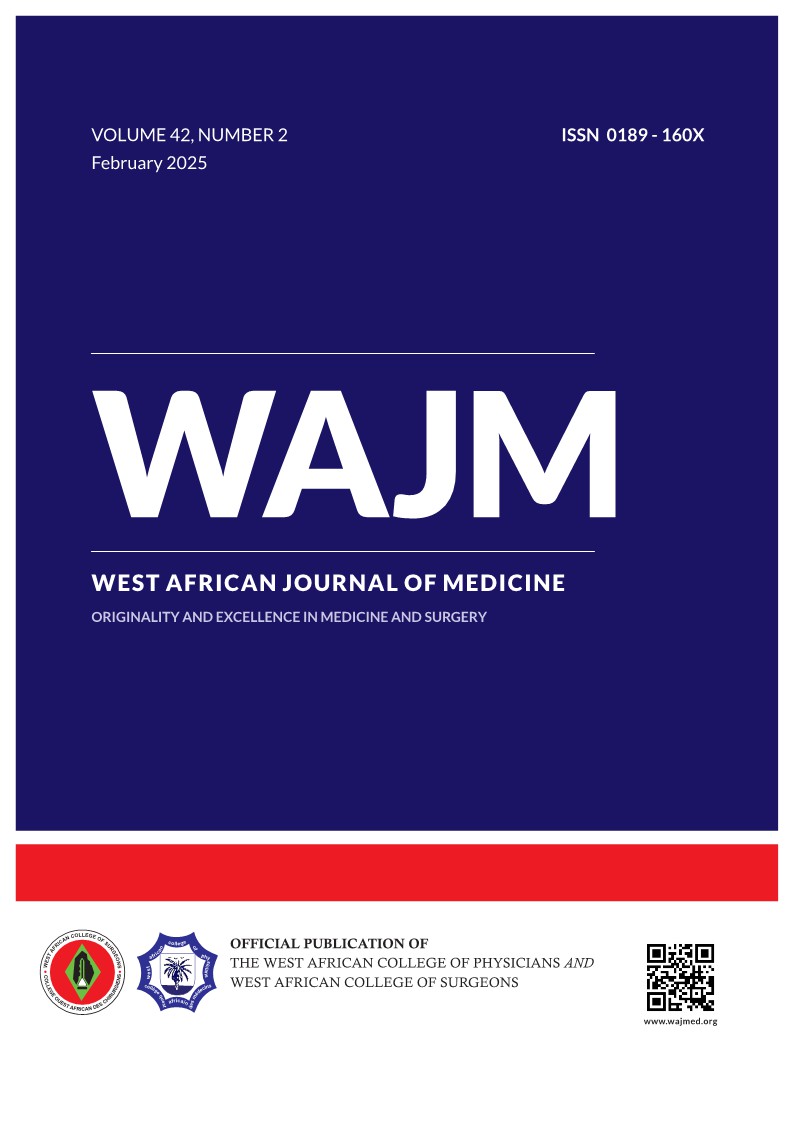ORIGINAL ARTICLE: Work-Related Stress among Academic Staff of a Higher Institution in South-west, Nigeria: A Cross-sectional Study
West Afr J Med February 2025; 42 (2):90-96 PMID: 40618379
Keywords:
Lagos, Nigeria, Occupational stress, Prevalence, University teachers, WSQ, Work-related stressAbstract
Background and objectives: Work-related stress has been described as a global epidemic of the 21st century. University lecturers are observed to be exposed to various degrees of occupational stress which influence their multiple roles to impart knowledge and skills to students. This study assessed the prevalence of work-related stress and the factors influencing it among university lecturers in Lagos.
Methods: A cross-sectional study design among 424 respondents using a multi-stage sampling technique was conducted. Work Stress Questionnaire (WSQ) tool, covering 4 main domains, (Influence at work, Indistinct organization and conflict, Individual demand and commitment, & Leisure time interference) was used to assess work-related stress among university lecturers in LASU, Ojo, Nigeria. Data was collected with KoboCollect app using an interviewer-administered questionnaire, and analyzed using SPSS software version 25 software. Data was presented using descriptive (percentages, summary measures) and inferential statistics (Chi-square test). Level of statistical significance set at p-value<0.05.
Results: Mean age of respondents was 49.9+8.2SD years. Male respondents were twice as more than female respondents. Majority (93.4%) of respondents were married and average work experience was 16.7+8.6SD years. Overall prevalence of work-related stress was (80.5%). However, stress due to leisure time interference was (36.1%). There was a statistically significant association between work-related stress and family size(p<0.05), gender(p<0.05), marital status(p<0.05) and work experience(p<0.05).
Conclusion: The prevalence of work-related stress was high. High family size, male gender, being single and shorter work experience, were statistically significantly associated with work-related stress. Adequate awareness of work-life balance measures should be entrenched with enabling environment.
Keywords: Lagos; Nigeria; Occupational stress; Prevalence; University teachers; WSQ; Work-related stress.


